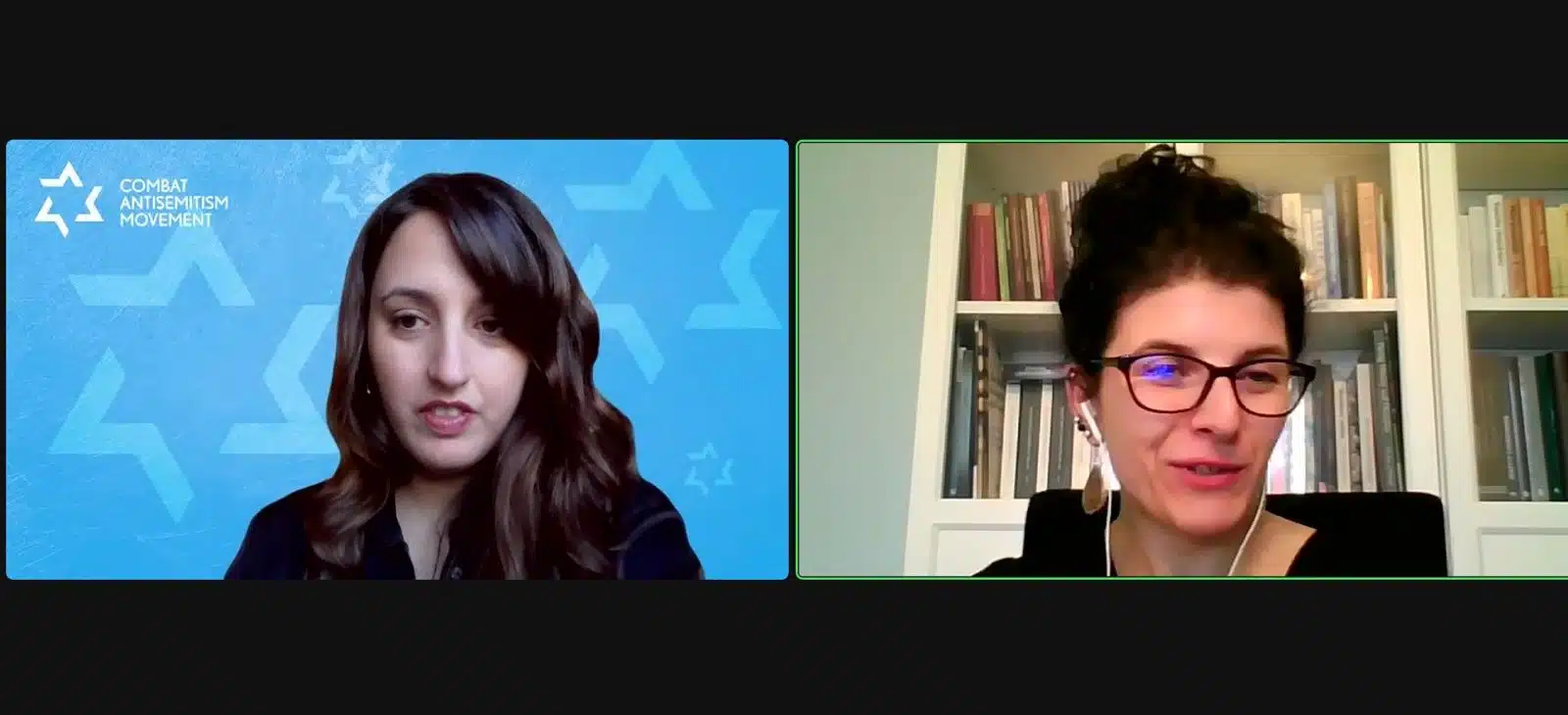The Combat Antisemitism Movement is among the more than 80 Jewish, educational, and civil rights organizations in the United States and globally to endorse a statement developed by the Alliance for Academic Freedom (AAF) and the Academic Engagement Network (AEN), urging the membership of the American Anthropological Association (AAA) to unequivocally reject a “Resolution to Boycott Israeli Academic Institutions.”
“Despite their many differences over policy, this diverse set of groups stands together on the most important principle sustaining higher education: academic freedom,” said Cary Nelson, Jubilee Professor of Liberal Arts & Sciences Emeritus at the University of Illinois at Urbana-Champaign and Chair of AAF’s Executive Committee.
Nelson, who is a past president of the AAUP, further warned that “either the freedom for universities everywhere to exchange ideas and collaborate — and for students to choose their own educational opportunities — is universally honored or it will soon be eroded for all. The campaign to boycott Israeli universities strikes at the foundation of higher education.”
AAA members will vote electronically on the boycott resolution from June 15-30, 2023.
Miriam F. Elman, Executive Director of AEN, expressed her disappointment at the resolution and its simplistic portrayal of a complex situation: “It’s legitimate to ask whether any members of the AAA who are now once again promoting a divisive resolution to boycott Israel’s system of higher education have ever visited an Israeli university or college in recent years. If they had, they would have witnessed a campus climate that’s open and free to dissenting views, including Palestinian voices. In recent years, Israeli universities have launched major initiatives to enroll Palestinian students along with programs that foster diversity and coexistence. There are many legitimate ways that AAA members can express their opposition to Israeli government policies. Boycotting Israeli universities and punishing their Israeli colleagues shouldn’t be one of them.”
The AAF/AEN statement cited multiple reasons to oppose the proposed boycott. Most significantly, the statement argued, academic boycotts are counter to the core values of the academy: “When the American Association of University Professors (AAUP) distributed its policy statement opposing academic boycotts in 2006, it made clear that the free exchange of ideas and research results among faculty members and their universities worldwide is fundamental to the academy’s core mission of pursuing the truth.”
The statement also highlighted that an academic boycott would be antithetical to the AAA’s own stated “deep commitment to academic freedom and open debate.”
The statement emphasized how an academic boycott of Israeli institutions will inevitably result in discrimination against individual Israeli academics: “Indeed, the boycott of Israel’s universities cannot be meaningfully separated from the faculty and students who work, teach, and study in them. The boycott thus functions as a blacklist that punishes individual academics on the basis of their nationality, political views, and the policies and actions of their employers and government.”
This view was reinforced by Alma Gottlieb, a Visiting Scholar in Anthropology at Brown University, Professor Emerita at the University of Illinois at Urbana-Champaign, and Visiting Professor of Anthropology at Minzu University in Beijing.
“By tarring a group of scholars with the same brush, we essentialize people by reference to their nationality,” Gottlieb said. “Surely, that’s a move that we anthropologists have been at the forefront of opposing in so many important contexts. Boycotting an institution means, by definition, boycotting the individuals who work for that institution. Such a boycott would turn our colleagues into non-persons, as far as our social universe is concerned. What sense does this make as a way to engage with our scholarly colleagues, and how would it possibly further the cause of Palestinian rights?”
The statement also critiqued the boycott campaign’s depiction of a “monolithic Israeli academy malevolently hostile to Palestinians,” which ignored the “wide range of opinions” within the Israeli academy and the fact that “many Israeli academics object to the Israeli government’s policies and actions.”
Finally, the statement condemns the one-sided nature of the proposed boycott, declaring that it “denies legitimacy to and respect for the valid and widely shared perspectives of most Israelis and turns the complexities of the Israeli Palestinian conflict into a caricature, [singling out] one side for blame and [establishing] a false binary of oppressor vs. oppressed.”
For all these reasons, the AAF/ AEN statement argued, passing the boycott resolution would “be profoundly destructive to the AAA’s reputation and credibility.”
Acknowledging the current political turmoil in Israel, it instead called for “a thoughtful consideration of the present moment” and declared that “cutting off relationships with Israeli universities now, and collectively punishing Israeli academics and those who work with them, is exceptionally irresponsible, foolhardy, and detrimental.”
The full AAF/AEN statement can be read here.
The Alliance for Academic Freedom is a national organization of scholars and academics who believe in empathy for the suffering and aspirations of both Israelis and Palestinians, and respect for their national narratives. Its members insist on the importance of academic freedom and open intellectual exchange, and so reject calls for academic boycotts and blacklists, as well as efforts to punish academics for their political speech, including those who support the academic boycotts that we oppose.
The Academic Engagement Network is a national organization that mobilizes networks of university faculty and administrators to counter antisemitism, oppose the denigration of Jewish and Zionist identities, promote academic freedom, and advance education about Israel.












